The New Orleans City Park, formerly a jewel in the crown of our nation's urban parks, faces an uphill struggle in its recovery from the effects of Hurricane Katrina. Yet recent successes have transpired through the efforts of volunteers from across the nation. On March 28, members of The United States Army Field Band and Soldiers' Chorus took time out of a 35-day tour of the southeast to assist in clean-up work.
Master Sergeant William Elliott, a percussionist with the band, organized the day's event. "I was encouraged and inspired to read about spring breakers donating their time to help rebuild. It goes right along with the core Army value of selfless service-working outside at the New Orleans City Park seemed like a great fit for our unit," he stated. Colonel Finley Hamilton, on his final tour with the band before his December retirement, agreed. "Although we were only able to spend a few hours working, we accomplished a lot. It's an honor to be part of such a caring, generous group of soldiers."
The Field Band's volunteers spent several hours in the Couturie Forest and Arboretum of City Park. Their tasks included planting trees, weeding around and mulching young trees, and clearing dead brush from newly thriving areas. The Couturie Forest is only a small portion of the park, which comprises1300 acres and remains the largest urban park in the country.
City Park suffered forty-three million dollars worth of damage in the hurricane and subsequent flooding. The damage ranged from the destruction of the maintenance and administration buildings to a near-complete death of grass and soft vegetation through saltwater immersion. The park infrastructure has also suffered, with its staff shrinking from 262 to around 30. A vital member of this staff is Volunteer Coordinator Lisa Laraway, whose own home suffered significant damage following the breach of a nearby levee.
"Since January, we've logged over 22 thousand volunteer hours, the equivalent of more than 20 full-time employees," she explained to band members. "Right now we're attempting to restore City Park to the goals set in our strategic plan developed before Katrina, not just to pre-Katrina conditions."
Laraway discussed the need for creativity in solving the park's problems. "Projects are developed according to the resources on hand, whether it's donated money, volunteer hours, or equipment." For example, although the park owns a watering truck, the trail through Couturie Forest remains too overgrown for the truck to fit. Field Band members made use of a large number of donated gasoline cans to water nearly 200 recently planted trees.
The band's touring mission keeps the American public connected with the military and all Soldiers through its free concerts, but has not brought the band and chorus to Louisiana since prior to Katrina. Many members appreciated this opportunity for hands-on involvement in the region's recovery. Staff Sergeant Lauren France related, "I was amazed at how slow some of the recovery's been. I'm really glad we could get out there and do something."
"Being Soldiers allows us to be self-motivated and not really require a lot of direct guidance; Ms. Laraway seemed pleased that we found things to do and just did them. I think this kind of experience really brings out the best in who we are," summarized Sergeant First Class Dan Bowlds.
Individuals interested in donating to New Orleans City Park or in volunteering should visit <a href ="http://www.neworleanscitypark.com">www.neworleanscitypark.com</a> for more information.
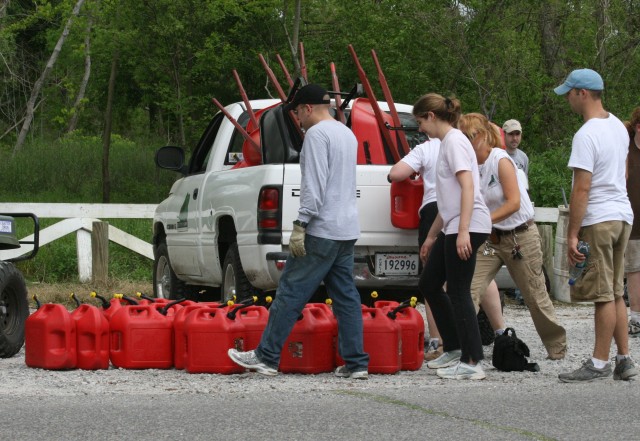
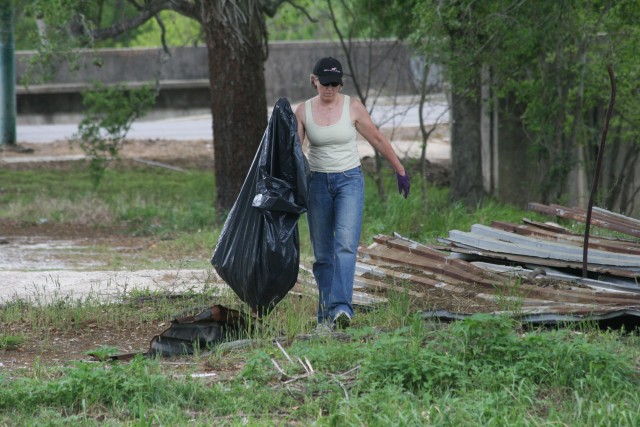
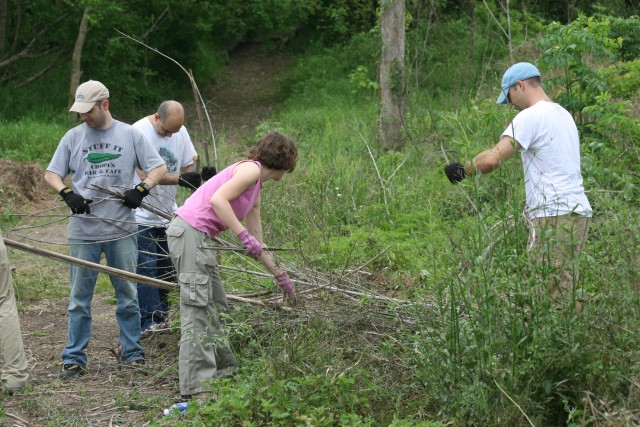
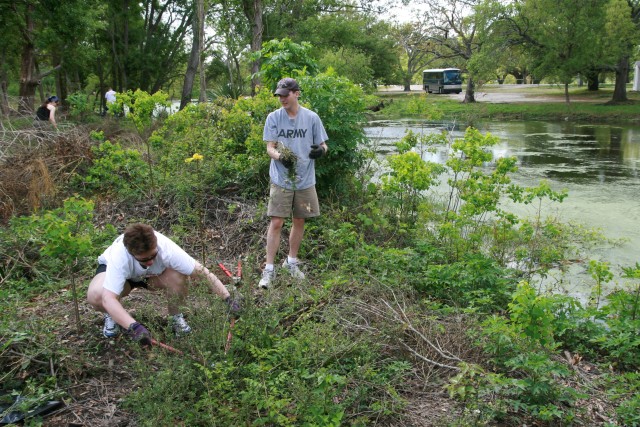
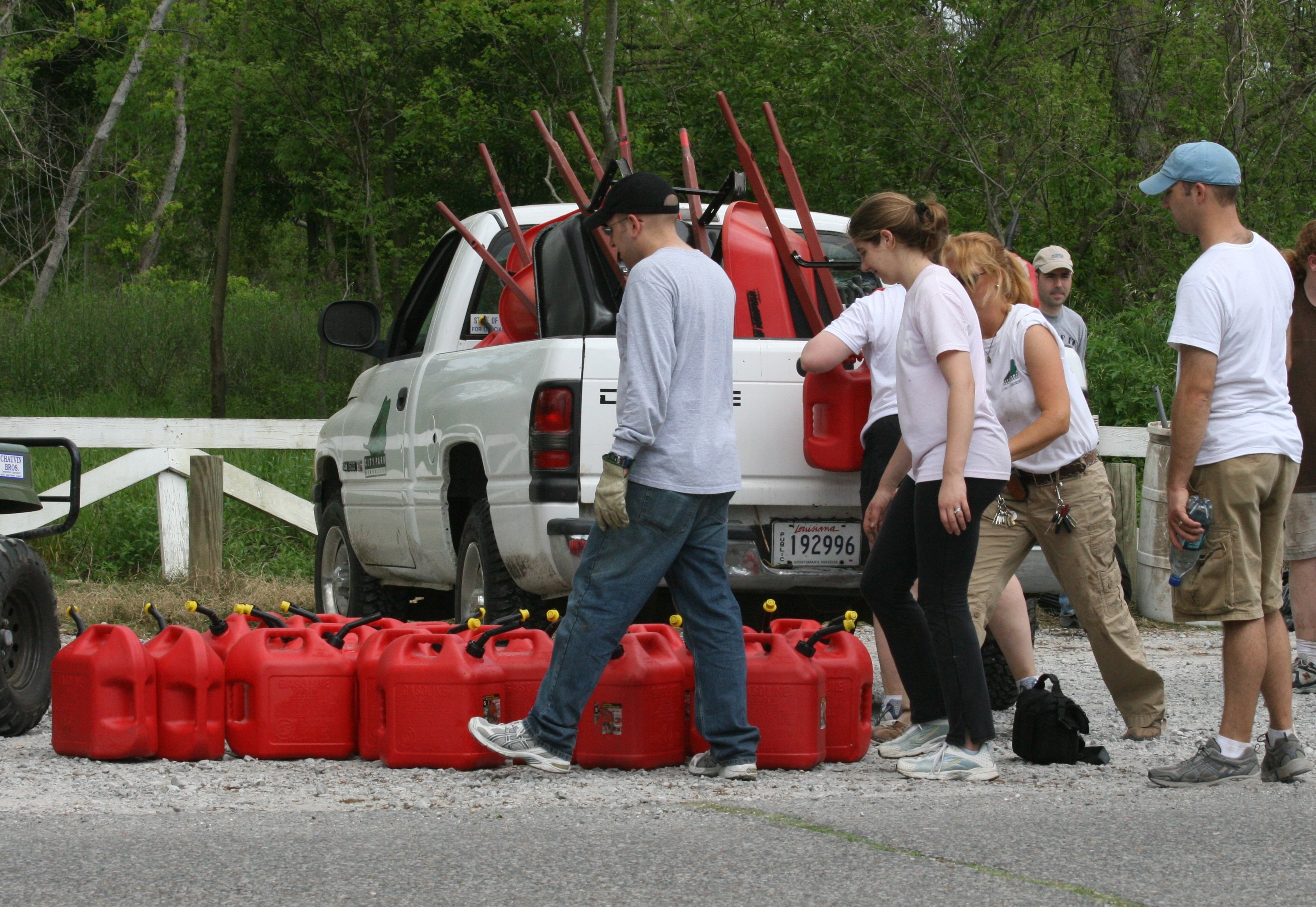
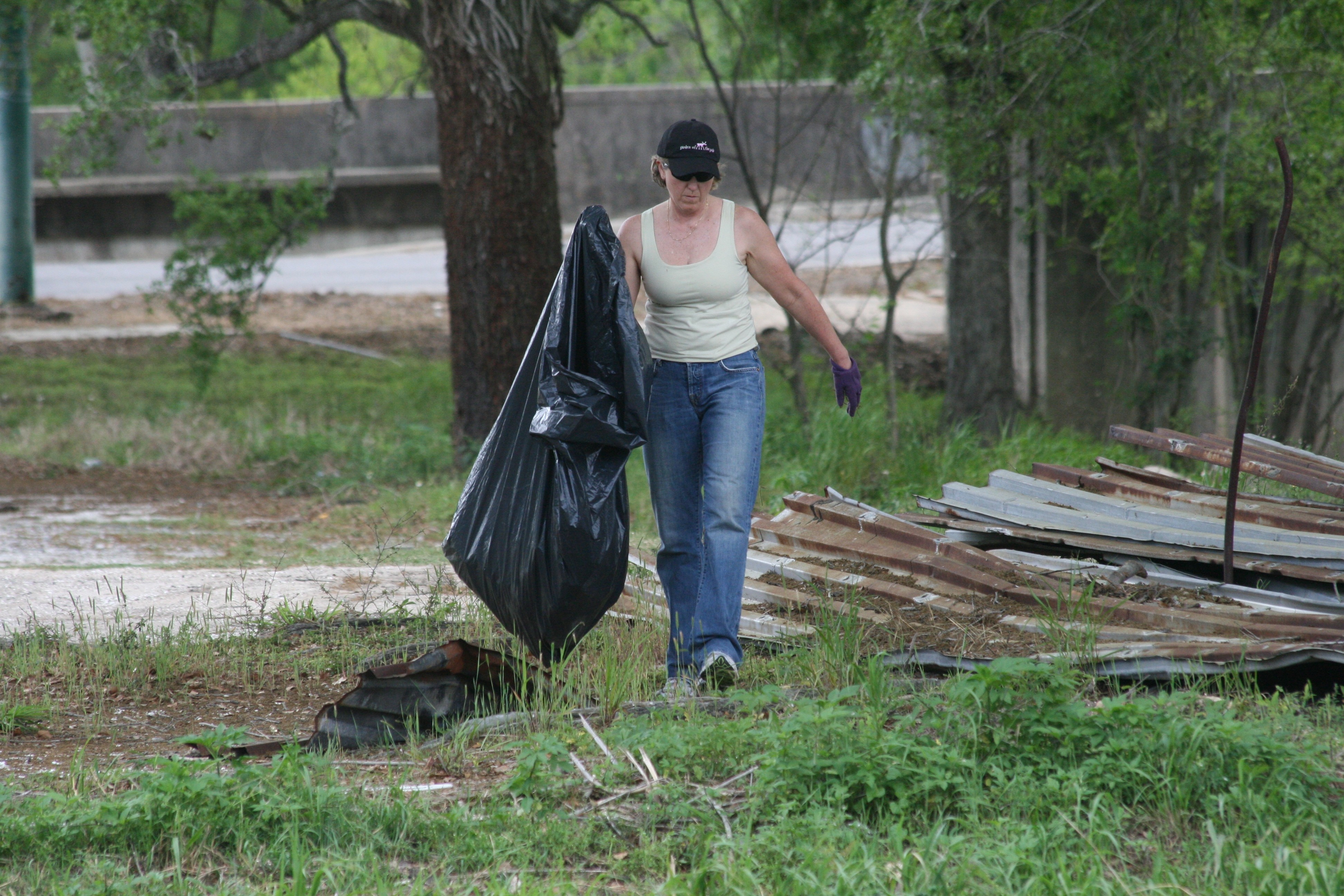
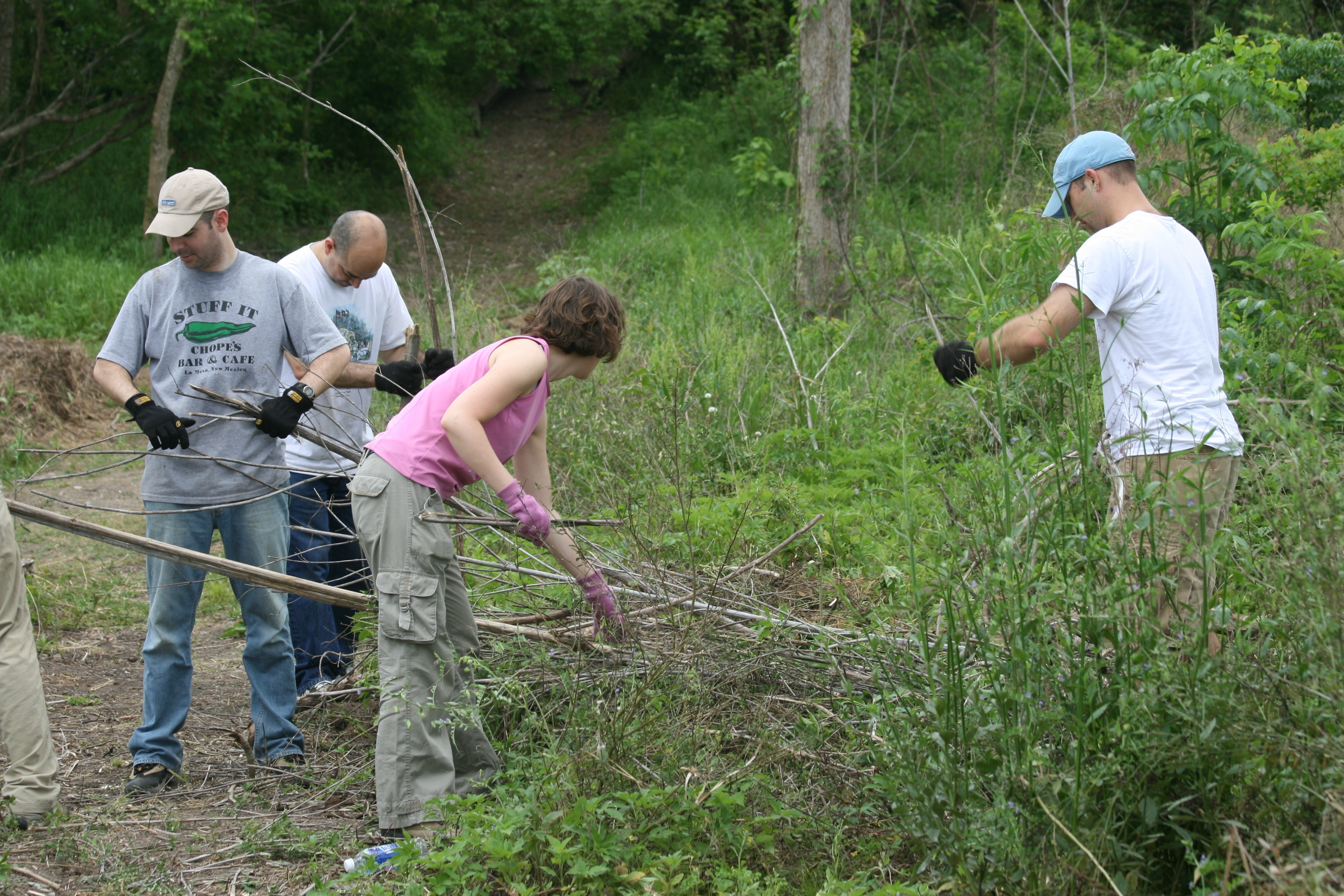
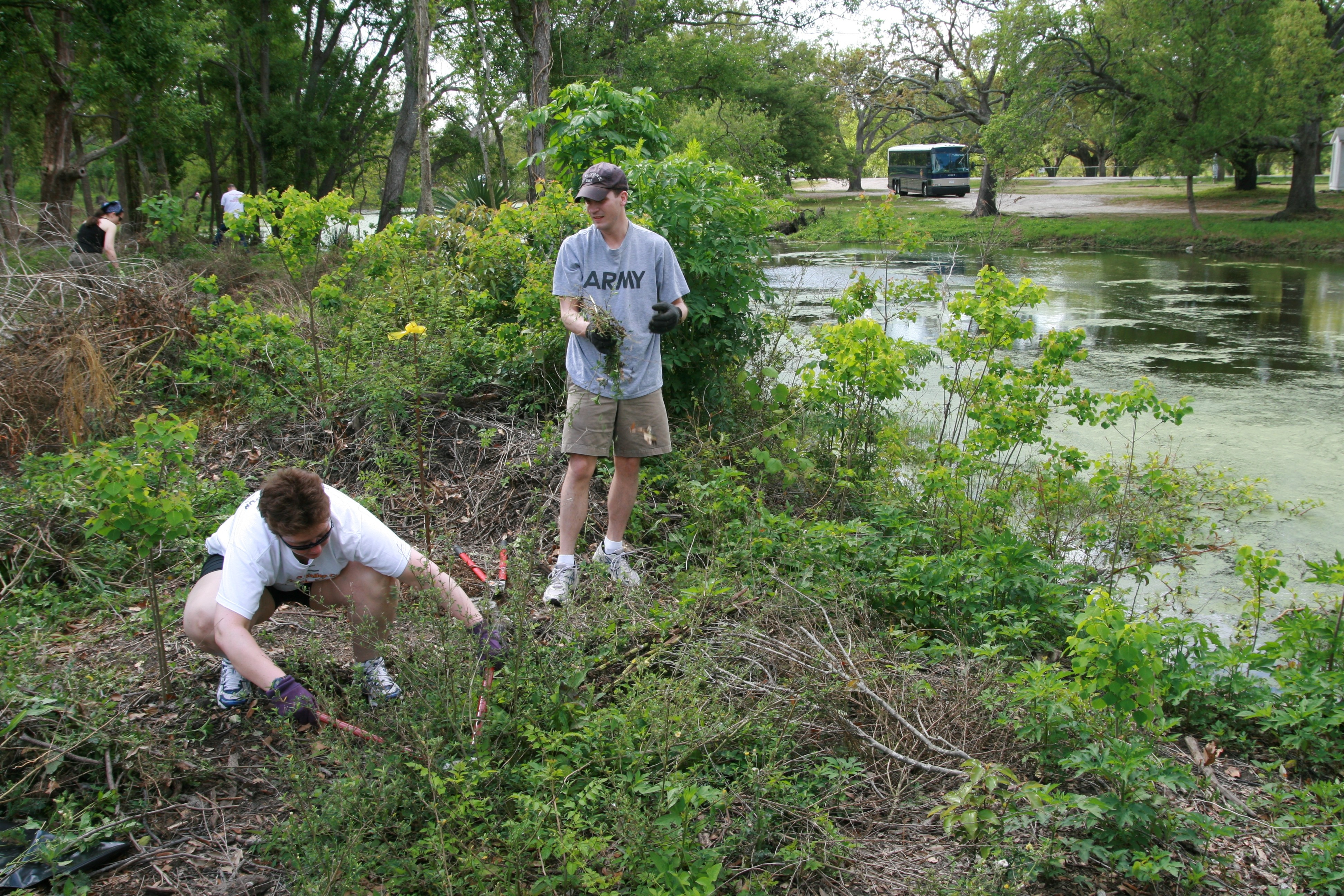
Social Sharing